During the Second World War London was home to, or visited by, tens of thousands of American Servicemen and women. When they wanted entertainment in the evenings they headed to the West End and the American Red Cross (ARC) Club was the first stop for many of them. There were several ARC clubs in London and many around the world offering meals and recreational activities, and the larger ones could provide overnight accommodations and facilities such as barbers and laundries.
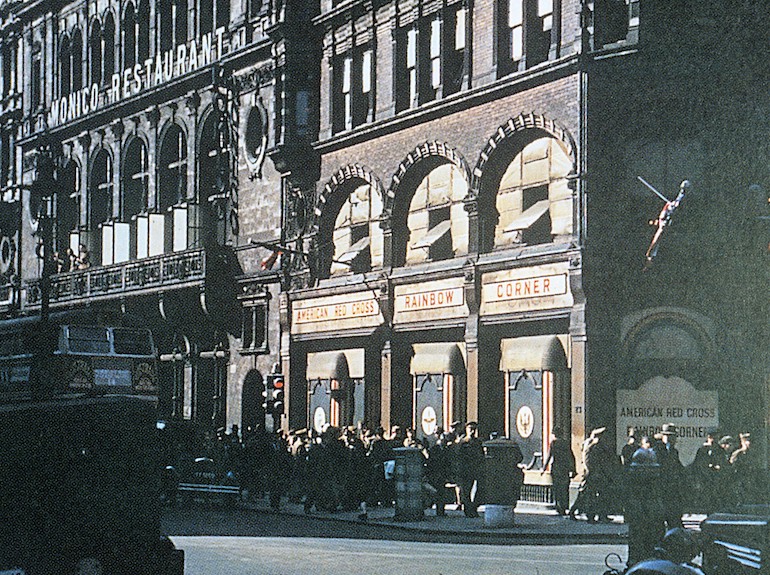 American Red Cross Rainbow Corner. Photo Credit: © Imperial War Museum.
American Red Cross Rainbow Corner. Photo Credit: © Imperial War Museum.
The most famous and the largest was Rainbow Corner (left) at 23 Shaftesbury Avenue. Its name came from a large number of personnel who had SHAEF badges featuring a rainbow on their uniforms. It was open to American servicemen twenty-four hours a day from November 1942 to January 1946, had a reputation for excellent food, and sold doughnuts, coffee, and Coca Cola. It could serve up to 6,000 meals a day and it is claimed that over 70,000 people entered the building in one twenty four hour period in December 1943.
Stars of the day performed at the American Red Cross Club. Some serving in the military, others travelling to boost morale, including James Stewart, George Raft, and Irving Berlin. Adele Astaire, Fred’s sister helped to run the club, and he danced there on 31st August 1944, to music provided by a trio drawn from the Glenn Miller Orchestra who were broadcasting to the USA. This was one of five radio programmes recorded here by the American Expeditionary Force Orchestra led by Glenn Miller.
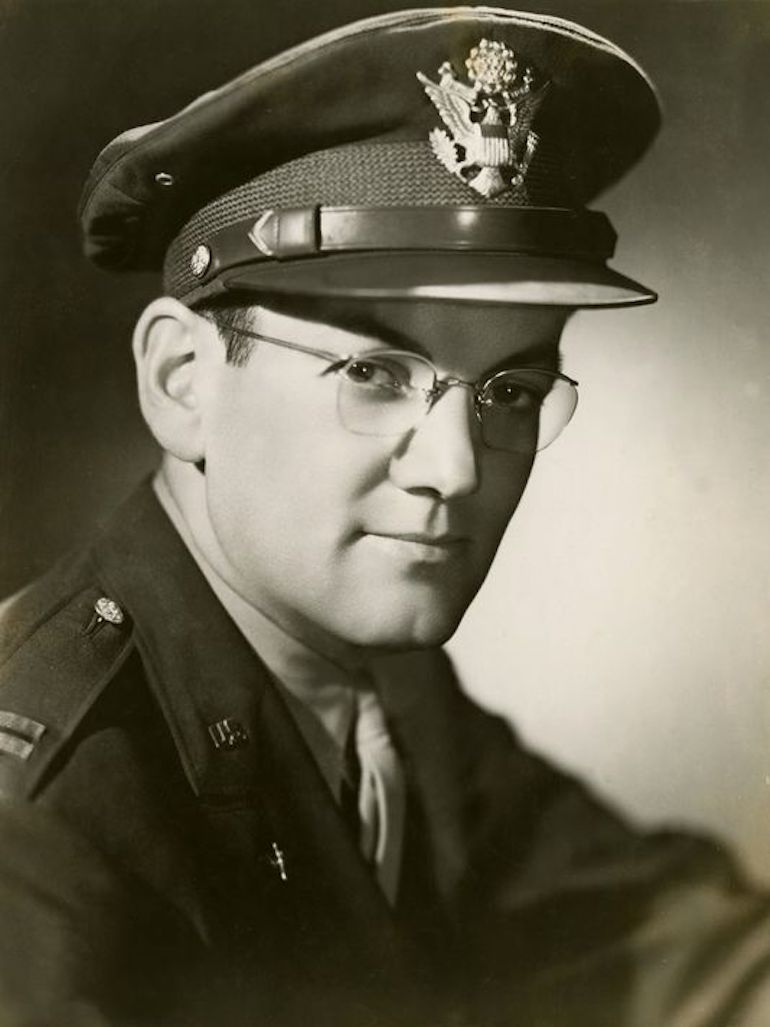 American big-band trombonist Glenn Miller who entertained troops during World War II. Photo Credit: © Public Domain via Wikimedia Commons.
American big-band trombonist Glenn Miller who entertained troops during World War II. Photo Credit: © Public Domain via Wikimedia Commons.
Glenn Miller had arrived by air in London on 18th June 1944, the rest of the band following on the Queen Mary, which had been converted to a troopship. On arrival, he inspected the band’s billets at 25 Sloane Court, Chelsea but was concerned as London was now a week into the V1 attacks. He spoke to the Deputy Director of Troop Broadcasting, one Lieutenant Colonel David Niven, who had already started his film career. Miller suggested Bedford as a safer place away from London and this was arranged. The rest of the band arrived in London via Greenock on 29th June and spent three nights in Chelsea before being transported to Bedford on the 2nd July. The following morning at 7:47, a V1 struck the road surface in Sloane Court, destroying half the buildings in the street and killing sixty-six US servicemen and nine civilians in the second-worst V1 incident of the war.
The Glenn Miller Orchestra played public concerts at several venues in London, including the Plaza Cinema on Lower Regent St. and the Stoll Theatre on Kingsway, as well as radio broadcasts from the Paris Radio Theatre and Abbey Road Studios. Most of their London shows were at the Queensbury All Services Club in Soho, now the Prince Edward Theatre. The orchestra played there weekly from the middle of September and gave the last performance at the venue on 12th December as a farewell concert before they moved to Paris.
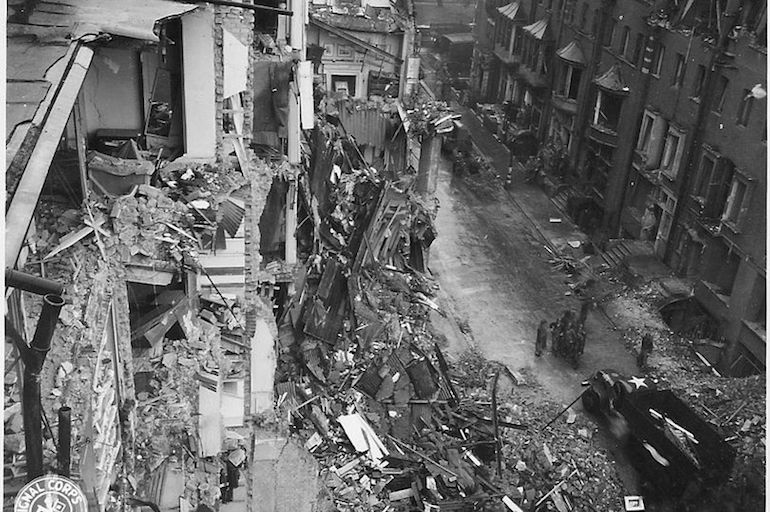 Bomb damage in the Chelsea area of London during World War II. Photo Credit: © Imperial War Museum.
Bomb damage in the Chelsea area of London during World War II. Photo Credit: © Imperial War Museum.
After the concert, Glenn Miller went around the corner to Kettners in Romilly Street for dinner, before spending the night at the Mount Royal Hotel. Now the Amba Hotel at the Marble Arch end of Oxford Street, it was used to billet US officers during the war. The next day he returned to Bedford and two days later on a cold, foggy December day, he and a pilot took off to fly to Orly, Paris and were never heard of again.
On 30th August Glenn Miller had gone to the Queensbury Club to see Bing Crosby perform on his first British tour. They both went to Kettners afterwards for dinner, followed by a considerable crowd who hung around in the street outside, hoping to catch a glimpse of Crosby, who was a huge star. This was extremely unwise, as the V1 flying bomb campaign was at its height and eventually Crosby appeared at a first-floor window and asked them if they would disperse if he sang for them. He sang two verses of ‘Pennies from Heaven,’ the crowd applauded him and then broke up in an orderly fashion.
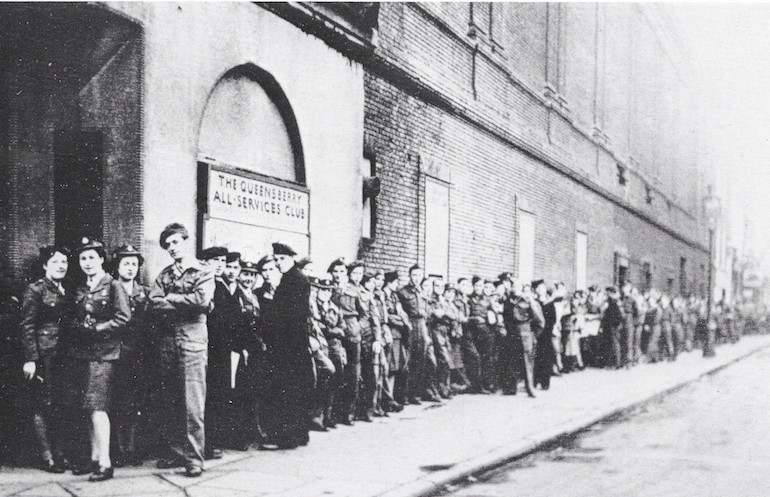 Queuing outside the Queensbury Club during World War II. Photo Credit: © Imperial War Museum.
Queuing outside the Queensbury Club during World War II. Photo Credit: © Imperial War Museum.
Bing Crosby also sang at the opening of another favourite venue for Allied soldiers, the Stage Door Canteen. Situated at 201 Piccadilly, next door to what is now Waterstones, it was an idea borrowed from America to provide quality entertainment and the only condition of entry was that you were in uniform.
After three years of war, rationing and cutbacks, and despite causing some problems and resentment, this influx of well- paid United States servicemen was a welcome boost to the economy of the West End, benefitting pubs, clubs, taxi drivers, prostitutes, flower sellers and many others.



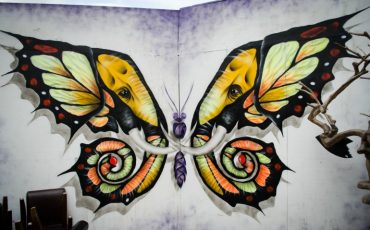
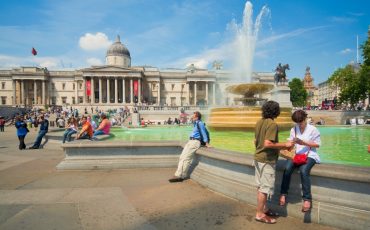

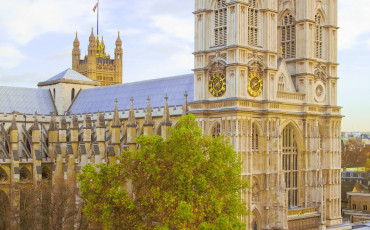
Leave a Reply